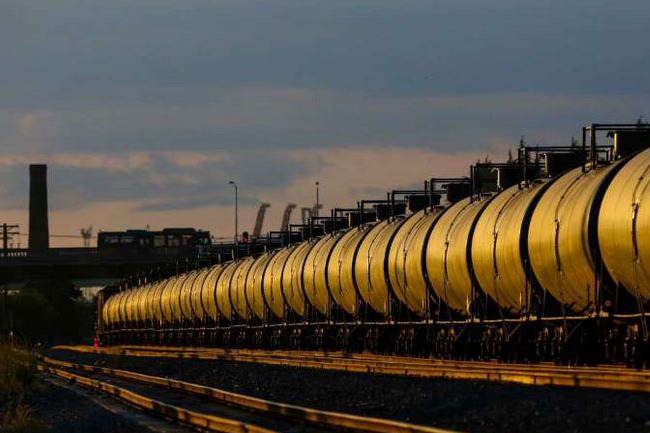By Joel Connelly, SeattlePI.com:
The oil giant Shell has withdrawn its controversial proposed oil train unloading facility and rail spur at its March Point refinery near Anacortes, a project designed to accept 60,000 barrels a day of crude from North Dakota.
The withdrawal comes two days after the state Department of Ecology and Skagit County released a draft environmental impact statement on the project, with three public meetings announced for Anacortes, Mount Vernon and Seattle.
"Economic conditions no longer support permitting of rail unloading facility," Shell said in a tweet.
Shirley Yap, the refinery's general manager, said in a statement that falling crude oil prices undermined the project's economic viability. "At today's prices, even if I had a (rail) facility, I would not be buying Bakken," Yap said in a statement.
The oil-by-rail proposal has been challenged by the state's major environmental groups. They held out a different explanation for why the project is not going ahead.
"Shell realized what local residents and First Nations people have been saying all along: Shipping oil by rail through Washington is bad for business, bad for our environment and threatens the safety of our communities," said Collin Jergens of Fuse Washington, the state's biggest progressive organizing group.
"Hopefully, big polluters are learning that they can't force through dirty, dangerous projects in the Northwest."
Kristen Boyles, attorney for Earthjustice, which represented the environmentalists, said: "Having a full and transparent public process exposed everyone -- including Shell itself -- to the risks and harms of this project."
Oil from North Dakota started arriving at four northern Puget Sound refineries in September 2012. Shipments have soared since then, along with protests and public unease at long oil trains passing through major Northwest cities.
The issue took on resonance during the summer, when 15 cars of a Union Pacific oil train went off the tracks in the Columbia River Gorge, with four of the cars catching fire.
Oil trains have proven a slick and hazardous issue for Democratic politicians.
The four refineries, two at Anacortes and two at Cherry Point north of Bellingham, are major sources of unionized, family-wage jobs. The Shell refinery has a workforce (including contractors) of more than 700. It supplies one-quarter of the Northwest's fuel.
Yet the greens are opposed, as are increasingly influential Native American tribes. Rail lines to the Anacortes refineries cross Swinomish Indian lands.
In addition to legal action by environmental groups, the publicity-seeking, direct-action wing of the movement staged a three-day protest in May against the Shell and nearby Tesoro refineries. The TV cameras rolled as 52 demonstrators were arrested for blocking the BNSF rail tracks.
The Shell refinery will not go thirsty. It will continue to receive Alaska North Slope crude oil by tanker, and Canadian oil by pipeline.
Still, opponents celebrated. Rebecca Ponzio of the Washington Environmental Council described Shell's withdrawal as "a win for our communities, our waterways and our climate."
"This is fantastic," Jesse Piedfort, a Seattle leader in the Sierra Club, wrote on his Facebook page.
There was jubilation in northwest Washington, a half-century ago, when refineries put down roots and the big Intalco aluminum smelter was built near Ferndale in Whatcom County.The climate is different today. Opposition by the Lummi Indians effectively killed the giant proposed Gateway Pacific coal export terminal at Cherry Point, earlier this year. The Shell facility generated major controversy in Skagit County.
Learn more about crude oil transport through the Columbia Gorge
Learn why Friends opposes crude oil transport

